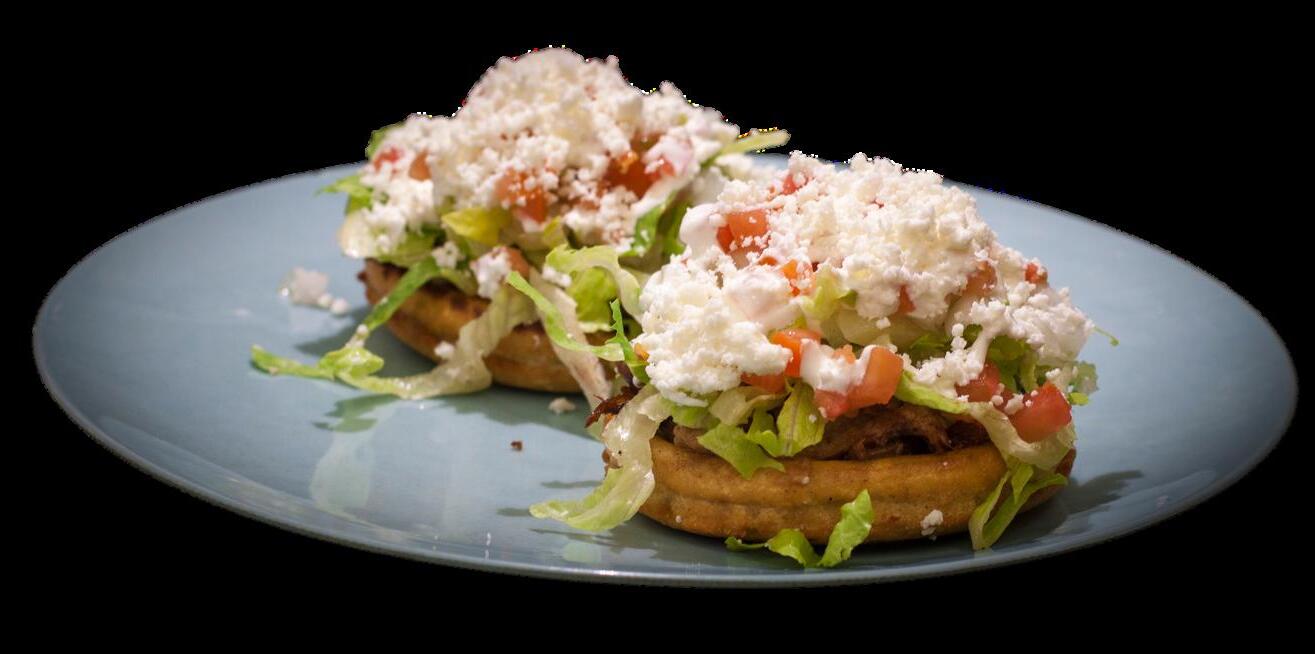

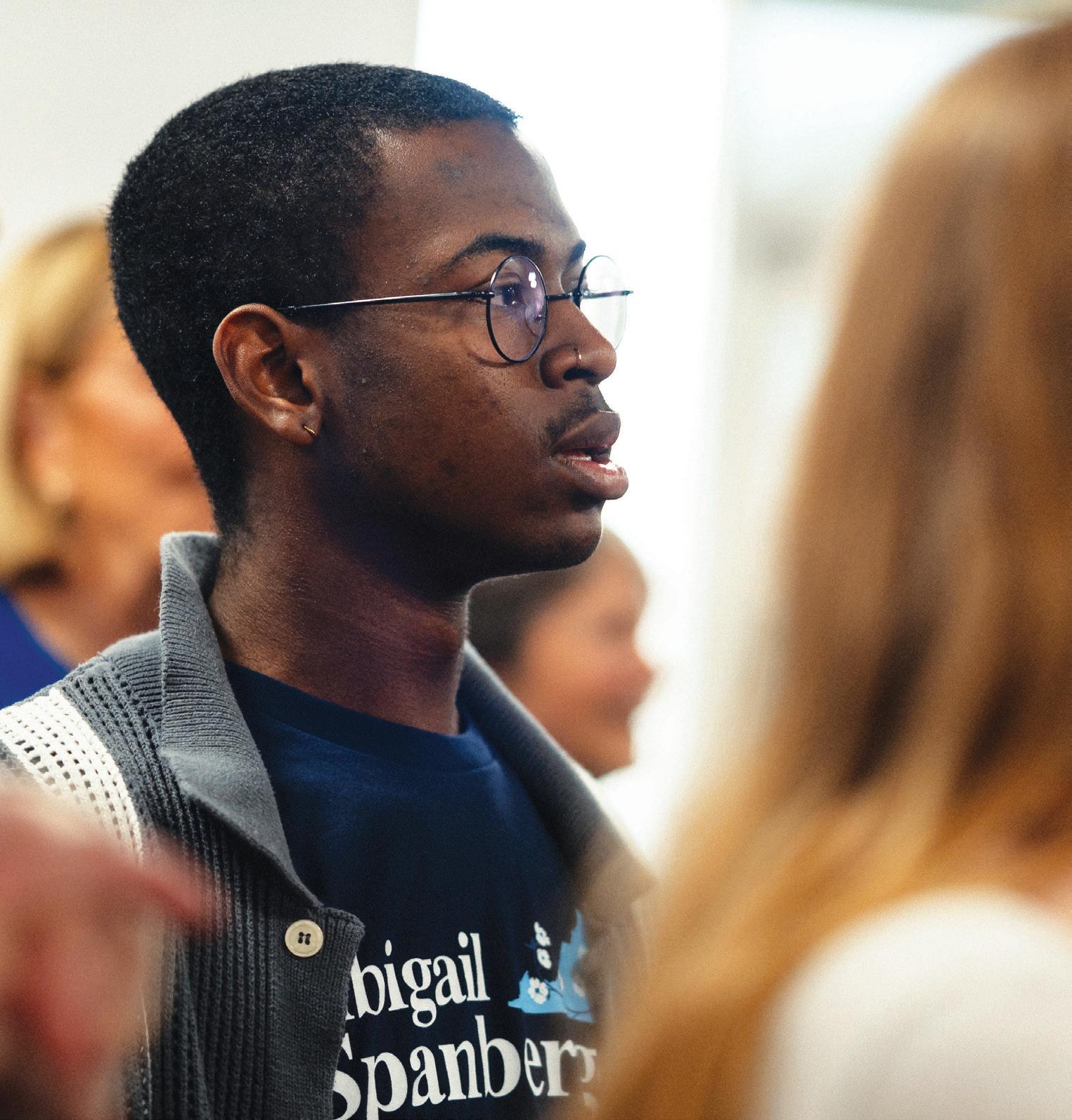










EDITORS Emma Notarnicola & Landon Shackelford EMAIL

By EMMA NOTARNICOLA The Breeze
As Election Day draws closer, knowing how to vote, the candidates on the ballot and what they stand for becomes more important.
This year, Virginia is electing its governor, lieutenant governor, attorney general and state delegates on Nov. 4, with Harrisonburg deciding its House of Delegates District 34 representatives. Here’s what you need to know about the different candidates.
Promoting tax cuts
Encouraging right to work
Supporting the police department
Promoting transparency
Strengthening public education
Protecting reproductive rights
This election cycle, the 34th District of Harrisonburg and Rockingham County is deciding on its state delegate, which will represent the district in the House of Delegates.
Delegates make a lot of important state decisions, which in turn affect Harrisonburg and JMU. Additionally, public universities rely on state funding to run their institutions, so it’s important to choose a representative students feel will advocate for their values, according to the Virginia General Assembly website.
This race is between 15-year incumbent and Republican candidate Tony Wilt and first-time Democratic candidate Andrew Payton.
Payton lives in Harrisonburg with his wife and two kids, where he works as an instructional designer in online education, continuing his 15-year education career, according to his campaign website.
Payton advocates for affordable health care, lower cost of living, higher minimum wage, stronger public schools and preserve the environment, according to his website.
Payton said he wants to encourage health care across Virginia. He also said, health care premiums currently cost too much for the average household and have greatly increased the cost of living for Virginians who still worry about large medical bills.
Payton said he wants to lower the cost of living for Virginians through increasing home affordability and raising wages, according to his website.
Graduating into a recession in 2008, Payton said he knows the hardships that come with affording basic necessities and hopes to advocate for the working class as other politicians work to further the goals of the elite.
He added that he advocates for a larger emphasis on funding education, especially public schools. This includes for universities to make four-year degrees attainable without excessive debt, he said.
“I believe that public education is how you create the economy of the future,” Payton said.
He said funding for these initiatives will come from better utilizing surplus spending and generating more funds by advocating for increasing taxes on the top wealthy 1%.
“I will continue to support policies that make it easier for Virginia families and small businesses to succeed,” the website reads.
Wilt’s website says he supports initiatives encouraging student recovery efforts after the pandemic to incentivize higher performance within public schools, increasing jobs that don’t require four-year college degrees, and promoting alternative pathways toward success.
However, Wilt’s website reads that he’s supported funding for JMU in the past, particularly with the expansion of its nursing program and addresses JMU’s disparity of funds per student.
Like Payton, Wilt’s website says he hopes to continue supporting agriculture and natural resources and have historically worked to support industries such as meat and dairy. Additionally, Wilt said he will support initiatives that encourage farmers to preserve water quality.
Wilt’s campaign focuses on moving away from renewable energy right now instead focusing on providing affordable and efficient energy for Virginians, the website read.
Lastly, Wilt’s campaign emphasizes public safety and supporting the police department. Along with this, Wilt supports the Second Amendment and the right to free expression, according to his website.
On the state-wide scale, Virginia’s executive branch in Virginia is also decided during this election. Each position works to serve the entirety of the commonwealth of Virginia and play a large role in pushing for and approving legislation, according to Virginia’s website.
Additionally, the governor appoints the members of the Board of Visitors, the body that makes university decisions at each public virginian university.
Democratic gubernatorial candidate Abigail Spanberger previously served as an agent in the CIA, transitioning to a representative in the U.S. House of Representatives after flipping a historically Republican district in 2016.
Since then, Spanberger has spearheaded policies on the national level and was even named one of Congress’ most bipartisan members, according to her campaign website.
Spanberger’s main campaign focuses include: strengthening Virginia schools, guaranteeing affordability, growing Virginia’s work force, lowering health care costs, protecting reproductive rights, supporting veterans, protecting agriculture and the environment, and promoting government transparency.
Spanberger provides plans for each of these topics through the her website’svalues page.
Creating jobs
Encouraging public safety
Supporting argricultural industries
Lowering energy costs
Lowering cost of living
Supporting affordable health care
“You can raise about $300 billion a year by increasing taxes on folks that are making more than $1 million a year without raising taxes on anybody else,” Payton said. “I think folks that are making more than $1 million a year can afford to pay more in taxes.”
As delegate, Payton would focus on energy efficiency, weather preparation, and protect farm and public land from developmental pressures, according to his website.
Incumbent Republican candidate Wilt has served as delegate for the 34th District for over 15 years, and lives with his wife as a retired small-business owner, according to his website.
Wilt focuses on several campaign promises similar to Payton: managing cost of living; creating jobs; education; protecting agriculture resources and energy; public safety; and exercising First and Second Amendment rights.
Wilt’s campaign advocates for lowering the cost of living for Virginians as well, but through a different tactic including tax cuts for middle- and lower-income families and on the car tax, according to his campaign website.
According to Wilt’s website, energy policies will lower energy costs, and moving away from renewable energy will also contribute to reducing the cost of living.
Wilt’s campaign also focuses on job creation and supporting small businesses and entrepreneurs through access to reliable child care and reducing housing costs.
For higher education, Spanberger hopes to reduce the cost of college without affecting its quality. With this Spanberger hopes to increase access to financial aid, support historically Black colleges and community colleges, increase high school access to college course work and protect institutions from excessive government influence.
Currently serving as Virginia’s lieutenant governor, Winsome Earle-Sears is the Republican candidate for the governor’s race, according to her website.
Immigrating from Jamaica, Earle-Sears first came to the U.S. when she was 6 years old. After, Earle-Sears joined and served with the Marine Corps. She was then elected as a Virginia Delegate as one of the district’s first Republicans, before becoming lieutenant governor.
Now, Earle-Sears is running with these campaign promises: reducing the cost of living, promoting tax cuts, supporting public safety and police, funding quality education, protecting the right to work, encouraging women’s rights, and limiting transgender individual’s access to bathrooms or sports alternative to their birth gender, according to her website.
The lieutenant governor candidates
The lieutenant governor is the second-in-command to the governor and presides over the Virginia state Senate. Though the governor and lieutenant governor work together, they don’t need to be from the same party, according to the Virginia’s government website.
Ghazala Hashmi, the Democratic candidate for lieutenant governor, first emigrated to the U.S. at 4 years old, then moving to Virginia with her husband years later. In 2019, Hashmi was elected state senator for her district, becoming the first Muslim and South Asian-American to serve in the Virginia senate, according to her campaign website.
Hashmi has pivoted to by campaign for lieutenant governor this year. Hashmi’s main goals include: preserving and protecting reproductive rights, encouraging gun violence regulation, equal treatment for all Virginians, increasing funding for public education, and promoting all pathways toward success and the workforce.
Other factors in her campaign are strengthening jobs and the economy, helping families through lowering the costs of housing and healthcare, preserving the environment and promoting voting, according to her website.
On the Republican side, John Reid, former host of WMRA’s Morning Show for eight years, has lived in Virginia his entire life, he currently lives in Richmond with his partner, according to his website.
During his campaign, he said he hopes to advocate for expanding economic opportunities, and protecting the right to vote, supporting law enforcement, equal education and parental rights.
Reid also plans to decry the social agenda — especially regarding transgender identities — enforcing immigration laws, right to life, the Second Amendment and protecting free expression, according to his website.
The attorney general provides legal services for the commonwealth and defends Virginians’ interest; this position also work with law enforcement to preserve public safety, according to the Virginia government website.
The Democratic candidate, Jay Jones, grew up in Norfolk, Virginia, currently serves as a delegate in the Virginia House of
Delegates and served as the former assistant attorney general in the Office of the Attorney General of Washington D.C., according to his website.
On his campaign, Jones advocates for protecting abortion access; civil and constitutional rights; encouraging public safety and fair justice, lowering the cost of living; and holding corporations accountable while allowing for growth and innovation, according to his website.
Miyares is running on the Republican side as the incumbent. Miyares grew up in Virginia and graduated from JMU in 1998. Before becoming Virginia’s attorney general in 2022, he served in the Commonwealth’s Attorney’s Office in Virginia Beach, according to his website.
In his campaign, Miyares advocates for solutions toward the addiction crisis, managing crime and violence, protecting youth — particularly with mental health and sexual assault — and managing crime caused by illegal immigration, according to his campaign website.
Voting is an important part of the civic process and guarantees that constituents are well represented, Payton said
“We hope that [citizens] will spend every day from now until Election Day reminding people what’s at stake, reminding people that their voice matters, reminding people that their vote is their voice and making sure that they know and they feel empowered, and they see the value of using it because that is essential to the strength of our democracy, to the strengths of our community,” Spanberger said during her Spanberger Bus Stop speech Oct. 2
This was made in collaboration with the Madison Center for Civic Engagement.
CONTACT Emma Notarnicola at breezenews@gmail.com. For more coverage of JMU and Harrisonburg news, follow the news desk on X @TheBreezeJMU and on Instagram @BreezeJMU.

By EMMA BROWN
The Breeze
JMU officially formalized its relationship with the Collins Center after years of partnership, expanding the university’s Victim Advocacy service to include 24/7 care to students.
Though the Victim Advocacy team has always worked with the Collins Center, the relationship only now became official, Vice President for Student Affairs Tim Miller said.
“We felt that it was important for our students that if there is an incident after hours, that we had a university-sponsored support system for them,” Miller said.
This partnership gives JMU students 24-hour access to a

professional via call or in person who will help them after sexual or violent encounters, Miller said. Before the partnership, Victim Advocacy was only open Monday through Friday from 9 a.m. to 5 p.m.
Previously, the Collins Center only responded to law enforcement offices or in-person medical facilities, the center’s Associate Director Ross Erb said.
“Our advocates will now respond in person, when requested, to JMU to meet with students, faculty, staff after hours when JMU’s Victim Advocates are not available,” Erb said.
Outside of work hours, the Collins Center provides crisis help over the phone, referral services and in-person support; and it provides accompaniment to medical services or law enforcement interviews, Erb said.
“Sometimes it is just the caring presence of someone who understands what you are going through that makes all the difference,” Erb said.
JMU strives to assist its students in their best and worst moments, Miller said.
“Having done a job like this before as a volunteer, this is usually the most lonely and scary moment for people after an assault like this happens,” Miller said. “No one should have to do that alone, that’s not what JMU is about.”
Erb said he hopes students will know they have help in the aftermath of sexual violence and don’t have to face it on their own.
“[Victims] shouldn’t have to try to navigate an unfamiliar and, at times, confusing system by themselves,” Erb said. “I hope that this expansion of services will move students who have experienced sexual harm towards justice and healing, in whatever shape that takes for them.”
For most students, it’s likely they’re connected to someone who has been or will be directly impacted by sexual violence, Erb said.
“Even if they do not know who that person is, I’m sure that they would want that person to have compassionate, knowledgeable people available to work with them,” Erb said.
Miller said he hopes no student ever feels alone again in those hard moments, especially with the support of this new program.
“We have to make sure people know that when these things happen, we need to support those that are impacted and get them what they need,” Miller said. “Know that JMU and the Collins Center are going to be there for them.”
CONTACT Emma Brown at brown9eg@dukes.jmu.edu. For more coverage of JMU and Harrisonburg news, follow the news desk on X @TheBreezeJMU and on Instagram @BreezeJMU
By SIMONE DYSTANT
The Breeze
JMU students have the chance to help shape the future of local politics as they cast their votes in Virginia’s 34th House District election, with incumbent and Republican Tony Wilt facing off against Democratic challenger Andrew Payton on Nov. 4.
The race’s outcome could influence key issues that directly affect the JMU and surrounding community, as the district election covers Harrisonburg and parts of Rockingham County.
The majority of District 34 is encompassed by the city with JMU’s campus remaining a big portion it, according to the District’s profile.
Both candidates are looking to solve a majority of local issues, including strengthening JMU and other public schools in the area in terms of funding and public safety, according to their respective campaign websites.
Incumbent Tony Wilt currently serves in his seventh full term following the recent redistricting and hopes to solve local issues such as public safety, education and the cost of living, according to his campaign website.
“While Virginia’s schools have traditionally ranked well nationally, recent data and test scores show troubling declines, especially among minority and underprivileged students,” the campaign website reads.
Wilt supports legislation and budget initiatives to help local students in public schools reach grade-level proficiency, according to his website.
Wilt also secured $12 million in funding to address JMU’s per-pupil funding disparity as well as worked to expand the university’s nursing program, according to his website.
On Oct. 27, in a facilitated conversation on JMU’s campus, Payton described himself as a first-time candidate, educator, father and environmental advocate.
“Though we spend a lot of attention and energy on what happens at the federal level, state elections are also important
as the decisions happening there impact our daily lives,” Payton said.
He added that JMU has extreme power in this election because of how competitive the districts in Virginia are this year, so much so that the election could be decided by a few hundred votes.
“JMU has the power to make a decision here,” Payton said. “The number of students that turn out and how they vote is going to determine the results of this election, so your voice really matters.”
In terms of policies for K-12 and school students, Payton said he plans to aid in funding public education as well as make students’ healthcare more accessible.
“Half of the people in this district are struggling to afford basic necessities on a daily basis, and that’s true of a lot of students too, looking at the cost of rent, electricity bills and insurance,” Payton said.
Payton said he wants to emphasize the separation between government and free speech in both K-12 and university classes. While the government plays a substantial role in determining funding priorities, he said, it shouldn’t get between a professor and their syllabus, or a department and its curriculum.
“A classroom should be open to tackling difficult questions and not worry about what the administration is going to feel about it,” Payton said.
Regardless of the candidate, senior Democracy Fellow and senior Caroline Woodson said this election is really important for students because by voting, they’re deciding what goes on in Harrisonburg and the policies and laws that will directly affect students.
“It’s really important that students get out and vote so they can spend their time here feeling represented by the delegates who are elected,” Woodson said.

CONTACT Simone Dystant at dystansl@dukes.jmu.edu. For more coverage of JMU and Harrisonburg news, follow the news desk on X @TheBreezeJMU and on Instagram @BreezeJMU.


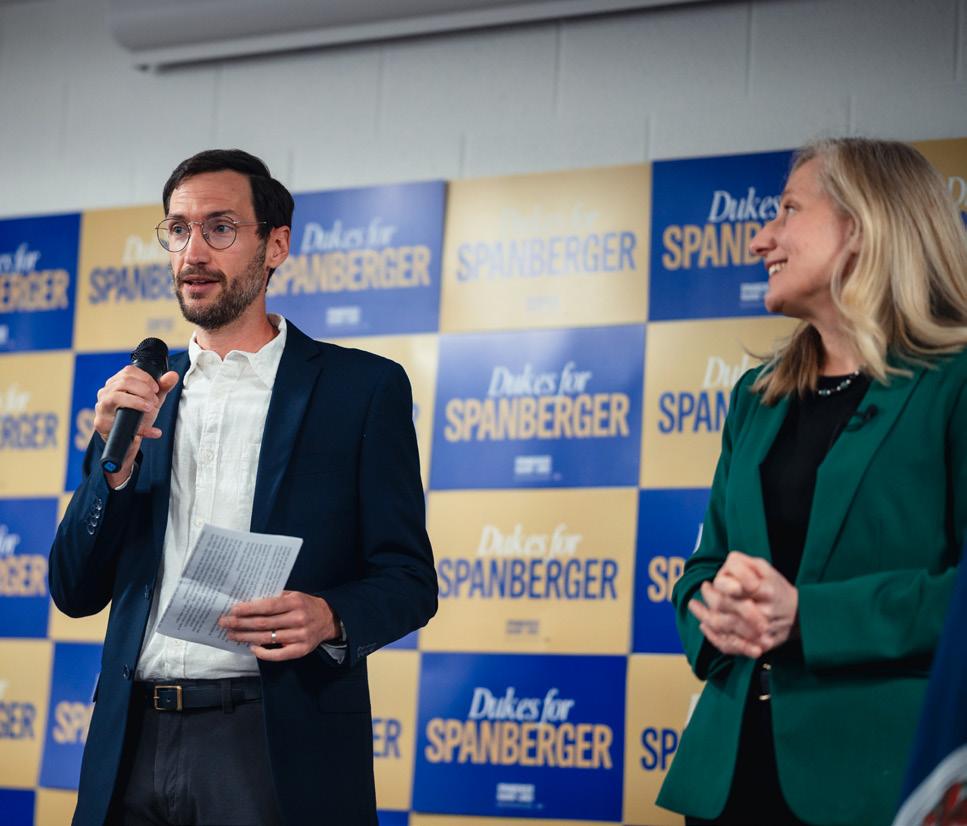
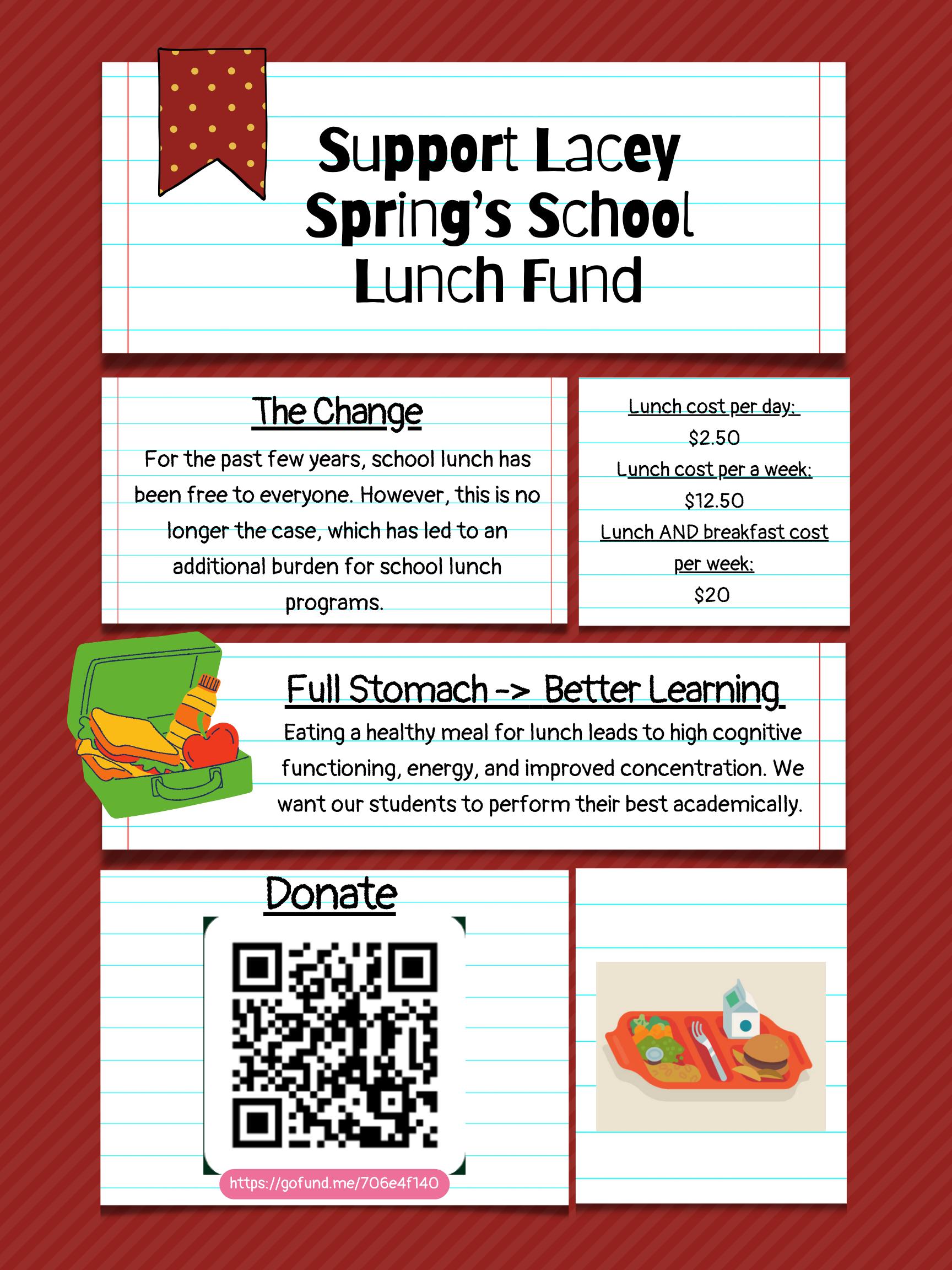
By SIERRA STOCKMAN
The Breeze
The U.S. Department of Education awarded the Madison Center for Civic Engagement more than $2.1 million to advance civic education in public schools — one of JMU’s largest competitively awarded grants.
JMU was one of multiple universities picked to participate in a selection process for this grant, which was created to celebrate America’s 250th anniversary, the Center’s Executive Director Kara Dillard said.
She added that current Virginia Secretary of Education
Aimee Guidera encouraged JMU to apply because she believed the university has one of the best civic engagement and discourse work across the nation.
“It speaks volumes to JMU ’s reputation that [Guidera] singled JMU out as somebody who should apply to this grant and who would be competitive for this grant,” Dillard said.
This grant focuses on K-12 education, and aims to give

students a deeper understanding of civic communication, Dillard said.
“This next generation of students will come to college and come into the workforce being equipped with high-quality civic skills to reason together, to collaborate across differences and to talk to each other even when [they] might disagree about big decisions,” Dillard said.
Another responsibility of this grant centered around helping students deliberate and have civic deliberation, Dillard said. She added that it will also provide students and their teachers an opportunity to be thoughtful about America’s next 250 years.
Dillard said this grant provides funding for 250 civic student fellows — all Dukes — to go into their communities and host discussions with K-12 students.
“It feels so important that the people who are leading the conversation about the next 250 years are youth,” Dillard said. “It’s giving JMU an opportunity to be the national leader or telling students [aged] 18 and under to say, ‘you have a voice and your voice has meaning and power in shaping what our country can stand for the next 250 years.’”
Over the next three years, the Madison Center aims to reach around 2,000 teachers and 50,000 students, Dillard said. She added she’s looking forward to working with the community to build skillsets for their classrooms and embed civil discourse into deliberation.
“Our goal is that every student who comes through that program is able to talk across divides, to have a level of intellectual humility, to recognize that their view is one of many views that might have value on a particular issue, and to listen even when the person sitting next to them has a different view in values set,” Dillard said.
The program is modeled after the Madison Center’s Better Conversations Together program, which helps first-year students engage in productive civic discourse.
“The legacy that this grant provides JMU is a recognition that the model JMU has really pioneered and developed here on our campus will then go to train the next generation of college students,” Dillard said.
Sophomore Democracy Fellow Caden VanValkenburg said he thinks the grants most important part is that it allows for the expansion of civic discussion through educating on the skills

and information required to have productive conversations.
“It’s going to give us so much more ability to communicate with the student body and to spread this kind of information,” VanValkenburg said.
He said over the past few generations, there has been a drop in civic engagement and constructive conversations.
“I think we really need to get our generation back into that area because if the last advocates go away with no one to replace them, we’re just going to be in a place where politicians feel like they can do anything they want to,” VanValkenburg said.
No matter how small, every election will have an impact on your life, VanValkenburg said. He added that even if the candidate is in office for a short time, their impact is going to stay after they’re gone.
“It’s hard to feel like you belong to a community or place when you feel like your views and values make you an outsider,” Dillard said. “We need to have the skills and abilities to be able to talk across divides, so that people feel like they belong.”
CONTACT Sierra Stockman at stockmsg@dukes.jmu.edu.
For more coverage of JMU and Harrisonburg news, follow the news desk on X @TheBreezeJMU and on Instagram @BreezeJMU



By EMMA BROWN The Breeze
The Student Government Association (SGA) approved $990 to Alpha Phi Omega (APO) and $3,000 to the Professional Convention Management Association (PCMA) in contingency funds, as well as heard proposals for new amendments to the SGA’s constitution during its regular Tuesday meeting.
$990 for Alpha Phi Omega
The SGA first unanimously approved a contingency fund request of $990 toward APO’s 49th National Convention.
The fraternity’s treasurer, junior Shannon Costello, and its president, senior Lauren Homem, represented the organization at Senate.
“At this convention, we’re going to be getting professional development through the twenty-plus leadership workshops, and we’re going to be building national networks with other student leaders from 300-plus campuses,” Costello said.
The event will take place in Philadelphia and is held every two years. The presenters added that APO will use this convention to vote on fraternity legislation and national leaders, as well as celebrate the fraternity’s 100th anniversary.
“We’re also going to be enhancing our values as leadership service, and also teamwork skills to bring back to emerging chapters,” Costello said.
APO plans to send five representatives from its chapter, with the national organization covering conference costs for two students — the conference fees are $399 per student.
Senior SGA Membership Chair Ella Stotsky asked how the fraternity decides which two members’ fees are covered by the convention, to which Homem said the national organization decides which representatives will receive total coverage of conference costs based on which two delegates will participate in voting.
APO uses dues to cover club expenses, and all fundraising proceeds go toward Valley Open Doors — an organization that provides emergency shelter for the homeless. Because of the lack of resources to draw from, the presenters said the funds would be necessary.
The organization requested specifically $990 to cover registration fees for three out of its five attendees, since the
conference is only covering the costs of two attendees, the presenters said.
$3,000 for PCMA
Next, the SGA approved PCMA’s $3,000 contingency request for the annual PCMA Convening Years Convention.
The three-day conference consists of speaker panels, info-sessions and exercise-based learning sessions about the hospitality industry, according to the organization’s presentation slides.
“We are trying to get as many people as we can to this convention, where you can meet with a bunch of industry leaders across the events and hospitality field,” senior PCMA treasurer Lilly Jerome said.
The contingency request covers conference fees as well as travel costs, to send eight to 10 people to the event.
“I got the pleasure of going last year [but] with no funding, so that was a hole in my pocket,” Jerome said. “That’s why we’re here asking for money, so we can send more people, because we only were able to send five last year with funding.”
Senior Representative to the Board of Visitors Sydney Stafford asked how the organization decides who is selected to attend the event. Jerome said the association uses a point system, and members earn points based on the number of events in which they participate, as well as their fundraising and volunteering efforts.
PCMA has organized various fundraisers over the past year — through 7-Brew, Qdoba, DoubleGood and Mrs. Fields — although it’s a recently revitalized club, its funding and resources are scarce, according to the presentation slides.
“I really wanted to go last year, and I unfortunately couldn’t, because it would have been out of my own pocket, but with [your] contribution, it would be so wonderful for me, as a senior, to go,” senior PCMA secretary Sofia Davis said.
The request was approved, with one senator, freshman Evan Khanna, voting against the request.
Following the approval of the two contingency requests, senior Senate Speaker Kieran Fensterwald read the list of proposed amendments to the SGA constitution to keep it up to date with JMU’s requirements for student organizations.

• Article eight: All students can be SGA members and can apply or be elected. All members must attend Stop the Haze training.
• Article nine: All advisers may be removed from their positions if they fail to uphold their duties by a threefourths vote from the SGA’s executive council.
• Article 11: A council must oversee all organizational events. The SGA can’t violate local or federal laws at these events.
• Article 13: The SGA opposes hazing. Members can’t engage in activities that violate the organization’s or the university’s policy. All SGA members are required to follow the University Code of Conduct.
• Article 14: All funds the SGA delegates are absorbed by the offices deemed appropriate.
• Article 15: The SGA doesn’t require membership dues. The JMU Student Life Fiscal Office gives money to the organization.
The Senate will debate and vote on each of these amendments in two weeks
CONTACT Emma Brown at brown9eg@dukes.jmu.edu.
For more coverage of JMU and Harrisonburg news, follow the news desk on X @TheBreezeJMU and on Instagram @BreezeJMU.




















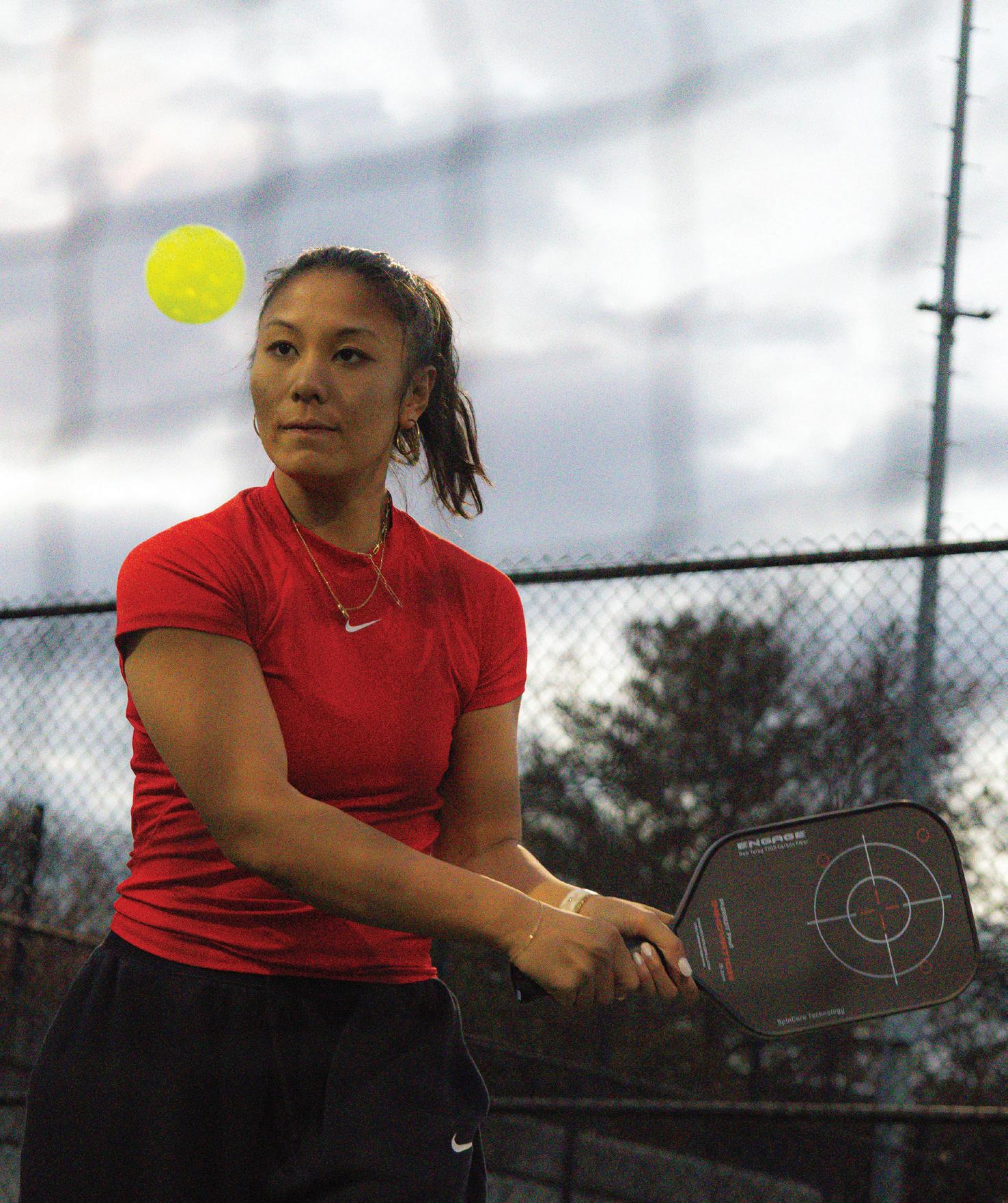
By NICOLAS ISAZA SERPA
The Breeze
Between exams, late-night study sessions and packed schedules, JMU students are finding relief in an unlikely place: the pickleball courts, where competition meets community. For its two teams, that sense of connection comes through Club Pickleball, one of JMU’s fastest-growing club sports.
Pickleball — a hybrid of tennis, badminton and ping pong — has exploded in popularity across the country. It’s been the nation’s fastest-growing sport for the past four years, according to USA Pickleball’s website. The surge is due to its low barrier of entry, simple rules and instant fun for players of all skill levels — something club members experience firsthand each week.
“Pickleball is so easy to play with your friends. I’ve seen every age group come out to compete,” Club Pickleball Secretary and junior Soren Povisils said. “It’s easy to play, easy to get good at and very accessible to all people.”
That same accessibility is what fueled a surge of interest at JMU. What started as a few friends between classes has turned into one of the most active clubs on campus. The group’s member list has never been longer. With that growth has come something harder to measure: a sense of belonging.
Senior Club President Presley Caroland said it’s not just the competition that keeps people returning to the courts week after week — it’s the friendships.
“I honestly think what keeps people is the relationships everyone has on the team,” Caroland said. “Everyone is close, and we’re all encouraging each other to get better while making friendships that will last beyond JMU.”
That bond has become Club Pickleball’s heartbeat. On any given afternoon, the sound of paddles cracking against plastic balls echoes across the courts. Laughter mixes with the rhythmic tapping of gameplay as beginners and seasoned players share the same space.
Club Pickleball is split into two divisions: social and competitive. The social team
welcomes anyone who wants to play, offering a relaxed way to meet new people and learn the game. The competitive team, meanwhile, fields 32 players who compete for their spots each semester.
The club competes in tournaments against other schools and organizations along the East Coast. Each strong finish earns the team a bid to the national level, where larger tournaments take them to venues across the country.
Last year, nationals brought the Dukes all the way to Dallas where the team went to the round of 32 and lost against Samford, the third seed overall. This year, the team is preparing to make its mark at the national tournament in Georgia.
“We are preparing for nationals by constantly emphasizing improvement and consistency,” Caroland said. “By boosting morale and excitement, our team is ready to get to work and show off.”
With opportunities for both casual and competitive play, pickleball at JMU offers something for everyone — from those looking to unwind to those chasing
championships. It’s become more than just a sport; it’s a movement built on connection, inclusivity and a shared love of play.
For students like junior Mathias Dawit, pickleball is an escape — a reset button in the middle of an otherwise demanding week.
“Pickleball has given me the motivation to do more,” Dawit said. “I come here on Tuesdays and Thursdays, and I have a great time doing it. At the end of the day, I’m just being myself and also playing the sport I love.”
What began as a quick break between classes for many students has evolved into a thriving community — one that turns a simple game into something much bigger. It’s a reminder that, even amid the chaos of college life, there’s always time to play.
CONTACT Nicolas Isaza Serpa at isazasnn@dukes.jmu.edu. For more on the culture, arts and lifestyle of the JMU and Harrisonburg communities, follow the culture desk on X @TheBreezeJMU and on Instagram @BreezeJMU.
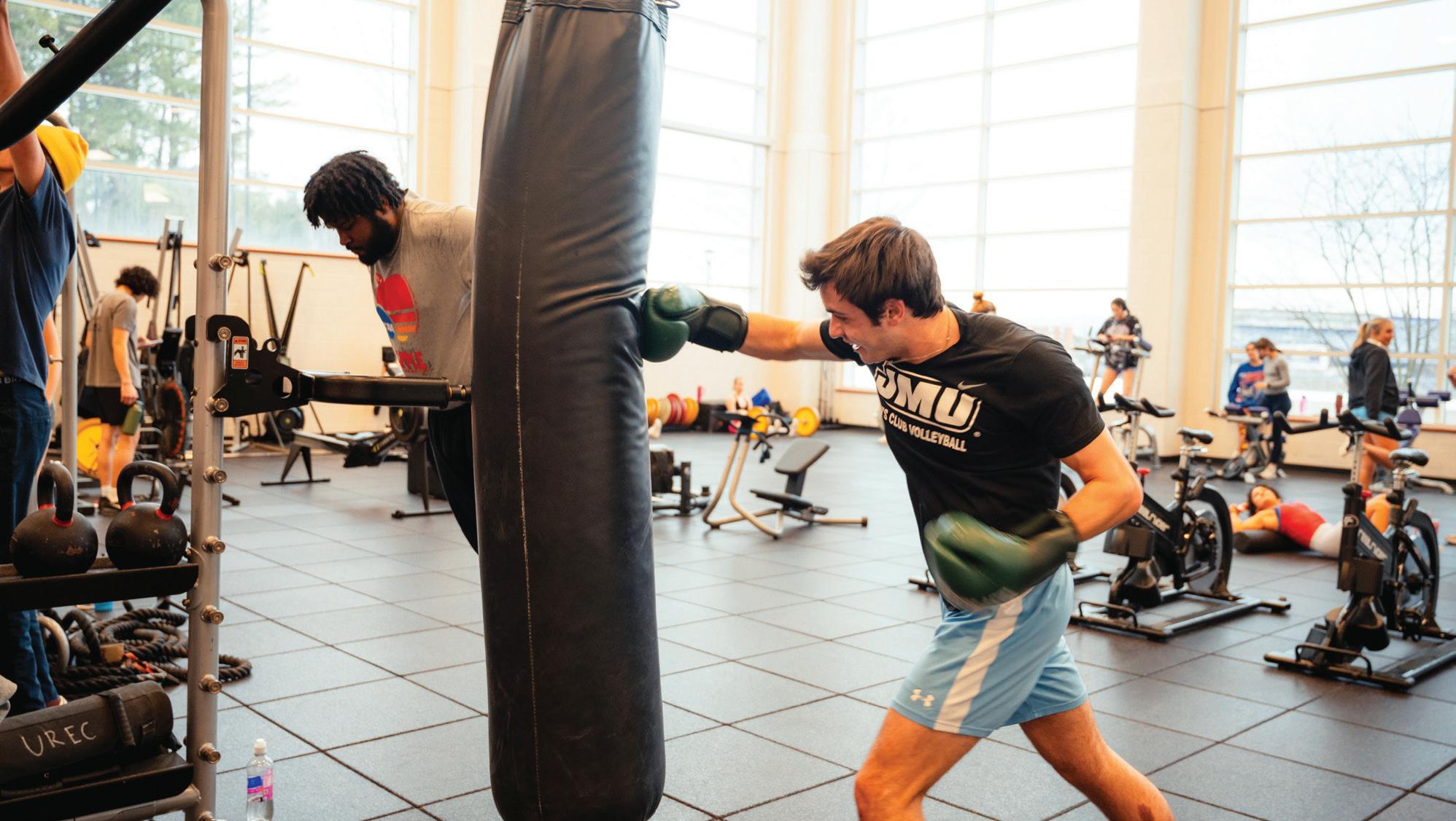
By SARAH TEWODROS The Breeze
When driving down Interstate 81, gazing out on campus, the University Recreation Center (UREC) is one of JMU’s most prominent features — and it also offers a variety of equipment, activities and classes for Dukes.
With an abundance of students attending daily, UREC serves as a fitness and social space to stay active and connect. It’s important for students to practice proper gym etiquette and respect the shared space and equipment to make sure everyone has a positive experience.
One of the most basic acts of gym courtesy is sanitizing and wiping down equipment — machines, benches and mats — after use. Sweat and bacteria accumulate on surfaces that are frequently used, which is why UREC provides disinfectant wipes throughout the facility.
“I think cleaning after yourself is important. People are generally really good at it,” sophomore Haley Jones said.
Similarly, another important gym habit is returning equipment to its original spot. Putting things back keeps the space organized and prevents accidents during the peak hours.
“An unspoken rule is to always rerack your weights,” freshman Roman Goel said.
Due to the large number of UREC regulars, it’s important to be mindful and aware when sharing equipment. When people are waiting for a machine to free up, it’s important to practice habits like not being on your phone while you’re not using the equipment.
“I use it sometimes during my break, but if you’re on the machine for 20 minutes, that’s a lot,” sophomore Ngawang Tenzin said. “Just put the phone away and do your sets.”
It’s even more crucial to be aware of this during the busiest hours which are typically around the early afternoon to early evening.
“When someone is using the equipment that you want for a very long time, it doesn’t allow you to get [the equipment] you want,” Goel said.
For those beginning their fitness journey or who feel overwhelmed by UREC, these small habits can help build confidence and become familiar with gym routines and etiquette. Besides good gym etiquette, there are other ways to help relieve gym anxiety.
“Going with a friend can help a lot, especially if you don’t know what you’re doing as a beginner,” Tenzin said.
Working out with someone and learning together can help reduce your anxiety. He also suggested finding a “sweet spot” when the gym isn’t too crowded with students.
Focusing on your routine and not comparing yourself to others can help grow your comfort level in the gym.
“Mind your business when you’re working out,” Goel said. “Don’t pay attention to what other people are doing.”
Everyone has their own goals and prior experience, so it’s important to remember that it’s normal to make mistakes. Most students are more focused on their own workouts instead of others’.
“Don’t be scared to ask for help; everyone has to start somewhere,” Jones said
CONTACT Sarah Tewodros at tewodrsx@dukes.jmu.edu. For more on the culture, arts, and lifestyle of the JMU and Harrisonburg communities, follow the culture desk on X @TheBreezeJMU and on Instagram @BreezeJMU.
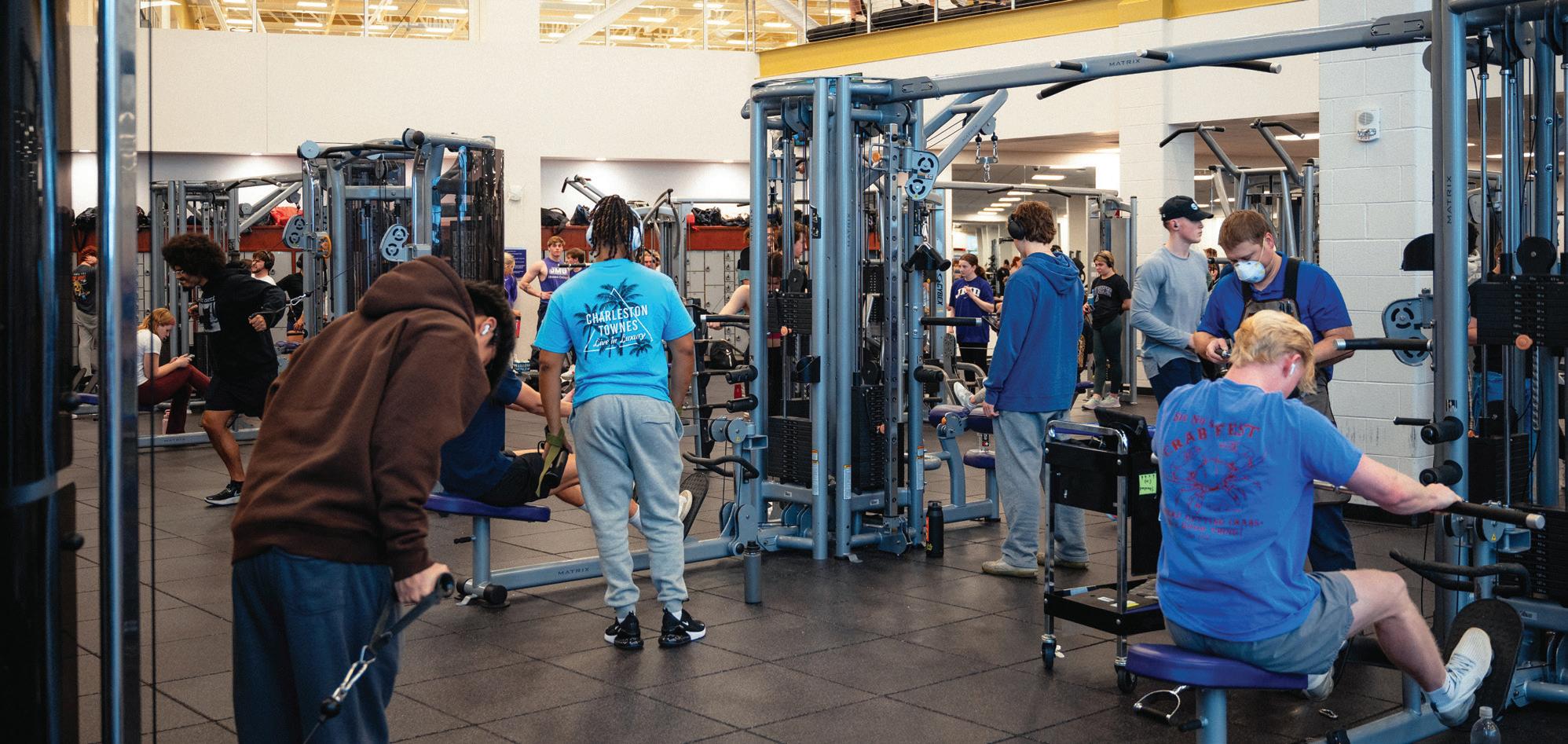


Why are students tired all of the time?
By ALYSSA MILLER The Breeze
College culture is a nonstop cycle of activity, and sleep is often at the bottom of your priorities.
Many students joke about the lack of sleep and the college norm of being tired and busy.
Sleep deprivation is the most obvious reason for feeling tired, according to Cleveland Clinic’s website. It can be easy to become sleep-deprived in college when you’re up late studying and socializing.
Long-term sleep deprivation can worsen your mental and physical health, as well as any previous health conditions. A few symptoms of sleep deprivation include headaches, slowed reaction times, trouble focusing and irritability.
According to Forbes, hustle culture sets unrealistic standards of productivity. It’s prominent among college campuses. Hustle culture emphasizes productivity and success, with no time for rest. It promotes the idea that if you aren’t working toward your goals, you’re wasting time. You may feel guilty about taking a break and put pressure on yourself to do the most work possible. Hustle culture almost always ends in burnout, so it’s best to maintain a good work-life balance that includes time for rest.
Want more motivation to go to bed? Here are a few side effects of sleep deprivation:
Emotional exhaustion: You may feel emotionally drained when you consistently experience stress from adverse and stressful life situations. Some of the many symptoms include fatigue, anxiety and headaches.
Your body interprets stress as a threat to survival, which causes your brain to release stress hormones, resulting in emotional exhaustion. This can make it difficult to stay awake during classes or complete daily tasks.
It may be unavoidable, but you can minimize it by recognizing the triggers that cause emotional exhaustion. No amount of sleep is able to fix exhaustion and burnout, but by focusing on the present moment, you can shift your focus away from your stressors.
Nutrition and fatigue: Students may have poor nutrition and eating habits. It’s common to skip breakfast or be too busy to eat nutritious meals.

By ALEXIA SHOEMAKER contributing writer
For many professors at JMU, the hardest part of their day begins long before classes.
Every weekday, writing, rhetoric and technical communication (WRTC) professor Jay Varner drives nearly 70 miles from Charlottesville to campus, a commute he describes as both “draining and unpredictable.”
He’s one of more than 300 faculty and staff who travel more than 25 miles to reach JMU, according to the university’s Transportation Demand Management Office.
Rising gas prices add up quickly for employees traveling 50 to 70 miles daily. For many faculty members living outside of Harrisonburg, filling their tank multiple times a week can take a noticeable chunk out of their paycheck.
Limited parking availability on campus adds fuel to the fire, an additional stressor for busy commuters. Circling parking lots or arriving early just to secure a spot, extending an already long travel time and increasing frustration.
Faculty commuting challenges are more than personal inconveniences, as they connect directly to university policy.
University policies restricting outside employment can also make commuting that much more financially difficult. Faculty who might otherwise supplement their income with part-time teaching or consulting work are limited by regulations designed to prevent conflicts with university duties.
The JMU Faculty Handbook and Manual of Policies and Procedures (MAPP 1304 and 1106) limit outside employment that could conflict with university duties. Professors can teach at other institutions only with prior approval from their academic unit head and, in some cases, the dean of their college. A process that can make earning supplemental income
difficult for those facing high travel costs. The policy is designed to prevent conflicts of interest and ensure faculty availability, but it arguably limits financial flexibility for commuting professors.
In 2023, JMU reallocated 57 new commuter parking spaces in the Warsaw Avenue Parking Deck after surveys showed underused faculty and staff parking, according to a 2023 report by The Breeze. The change, approved by the Parking Advisory Committee, aimed to ease student commuter strain but did little to address the growing number of professors living far from Harrisonburg.
To address transportation costs, JMU began exploring a vanpool program for faculty and staff. The idea was first proposed more than a decade ago, in 2014, when The Breeze reported that Lee Eshelman — JMU’s then-traffic demand manager — led open house meetings to discuss a van service for long-distance employees.
“We obtained the addresses of JMU faculty and staff, mapped them using GIS and identified clusters about 30 miles out,” Eshelman said in 2014. “Vanpooling could save money, cut emissions and even improve productivity if we add Wi-Fi.”
At that time, the university considered starting its first 50-mile route from Waynesboro, with stops in Staunton, Weyers Cave and Bridgewater before reaching campus. Other potential routes included Mount Jackson and Charlottesville, where many JMU employees live.
Some of the same challenges discussed in 2014 still exist today. Professors like Varner say flexibility is the biggest concern.
Read more online at breezejmu.org
CONTACT Alexia Shoemaker at shoemaap @dukes.jmu.edu. For more on the culture, arts, and lifestyle of the JMU and Harrisonburg communities, follow the culture desk on X @TheBreezeJMU and on Instagram @BreezeJMU.

By SHISHIRA NAKKA
The Breeze
JMU is home to over 400 clubs, and now, a new one is added to the list: the Madison Artificial Intelligence Club (MAIC). Founded by senior Mason Scofield earlier this year, MAIC is a space for students with interest in anything AI to come together to learn, explore and dive deep into the world of AI technology.
Scofield — a computer science major with robotics, computer information systems and integrated science and technology minors — described the club as “an opportunity to build a community where students could come as they are, learn AI [and] collaborate across industries.”
“MAIC, or the Madison Artificial Intelligence Club, is JMU’s first community for learning, experimenting, connecting and teaching all things artificial intelligence,” Scofield said. “In the world of AI, [the club] is a group of people looking to catapult each other forward in learning and develop personal and professional connections that will last long after college.”
MAIC is a place for hackathons, panels and discussions on AI and its future. Scofield said the club came about “almost by accident.”
“It was only in passing that my friend told me he was on the way to the first constitution writing meeting, and I halfjokingly asked to tag along,” Scofield said. “What started as a spontaneous decision quickly became something bigger.”
Scofield and his team of co-founders saw a need for a space to navigate their own curriculum and the real world, and the club became that for them.
“We want to bridge the gap between classes and the real world,” Scofield said. “When I first joined the early
conversations about MAIC, I quickly realized how necessary something like this was.”
He added that, although he didn’t come up with the idea himself, it was evident to him that there was a big demand for a club where students could get hands-on experience with AI.
The club has a unique application-based process and a committee system where members work together to build projects in their “field of application.” The club also hosts speaker events, conferences and panels to provide a clearer insight into the AI industry.
“To me, the Madison Artificial Intelligence Club isn’t just a place to learn or build skills,” Scofield said. “It represents opportunity. MAIC is about creating access for those who care, not just those with experience. I want this club to be a place people look back on fondly, and think ‘I wouldn’t be where I am without MAIC.’”
What Scofield and his team have strived to put together is an inclusive, curiosity-cultivating environment for students who just want to learn more about the changing world.
“My favorite part so far has been seeing how much excitement and support MAIC has received from every direction. Students, faculty and even professionals in the AI and tech industry want to come together to teach and learn from each other,” Scofield said. “It’s been incredible to watch what started as an idea turn into a community with momentum that people believe in. I believe what we are building matters, not just for us, but for the future of learners and aspiring professionals at JMU.”
CONTACT Shishira Nakka at nakkasl@dukes.jmu.edu. For more on the culture, arts, and lifestyle of the JMU and Harrisonburg communities, follow the culture desk on X @TheBreezeJMU and on Instagram @BreezeJMU.
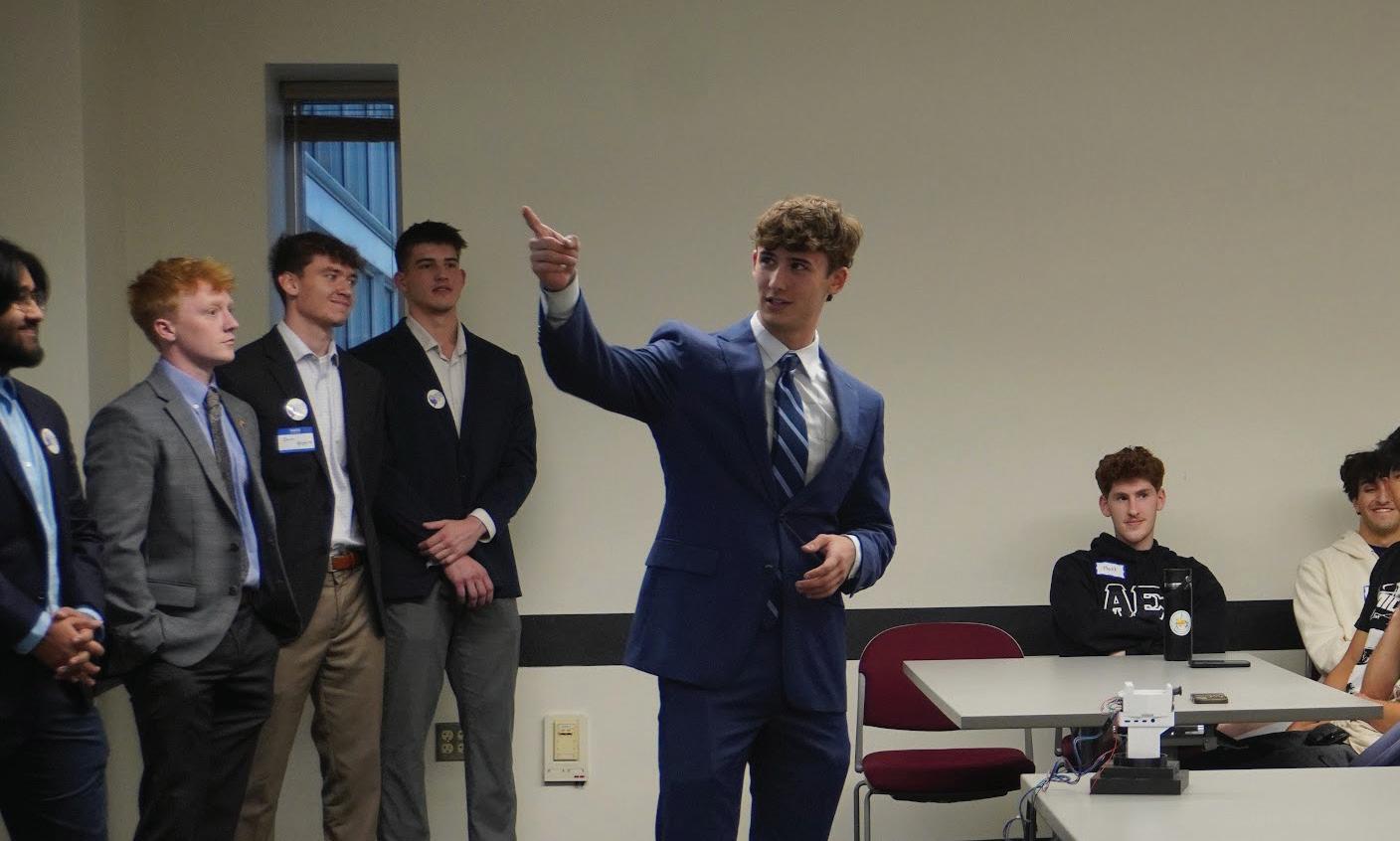

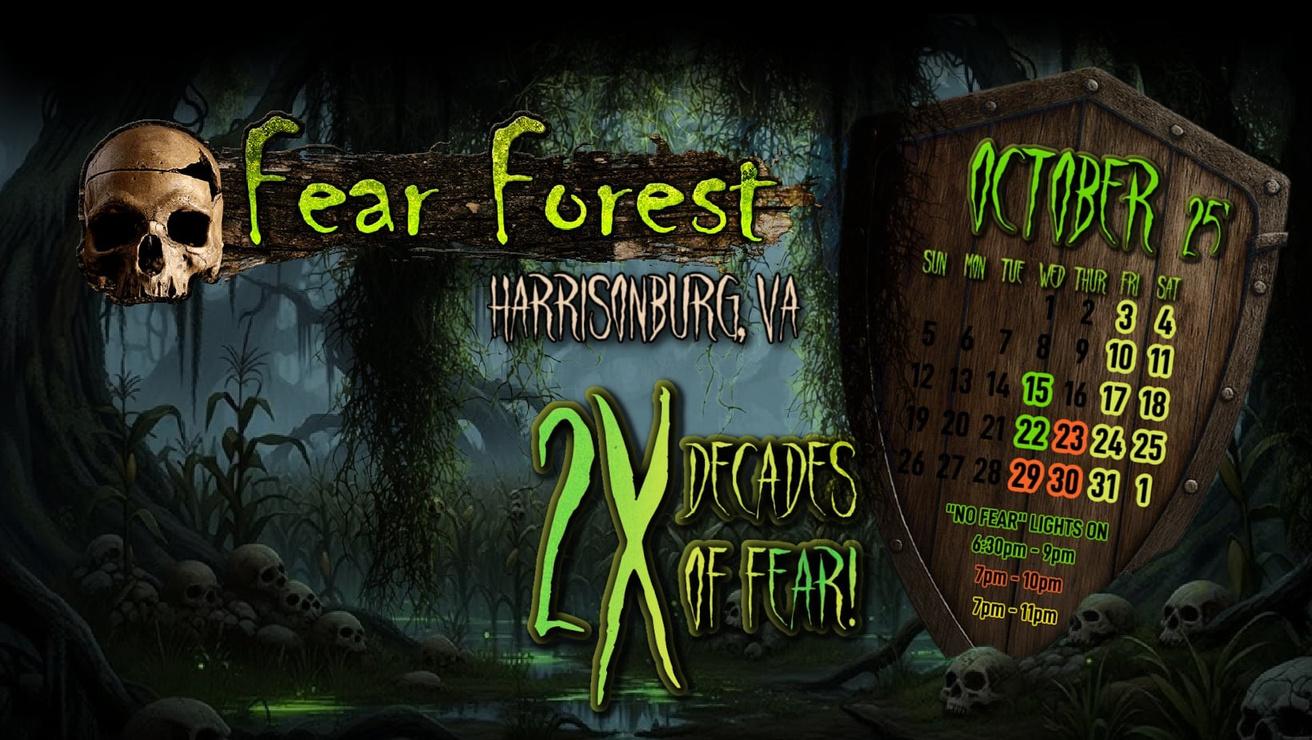

EDITORS Preston Comer & Gavin Avella EMAIL breezesports@gmail.com
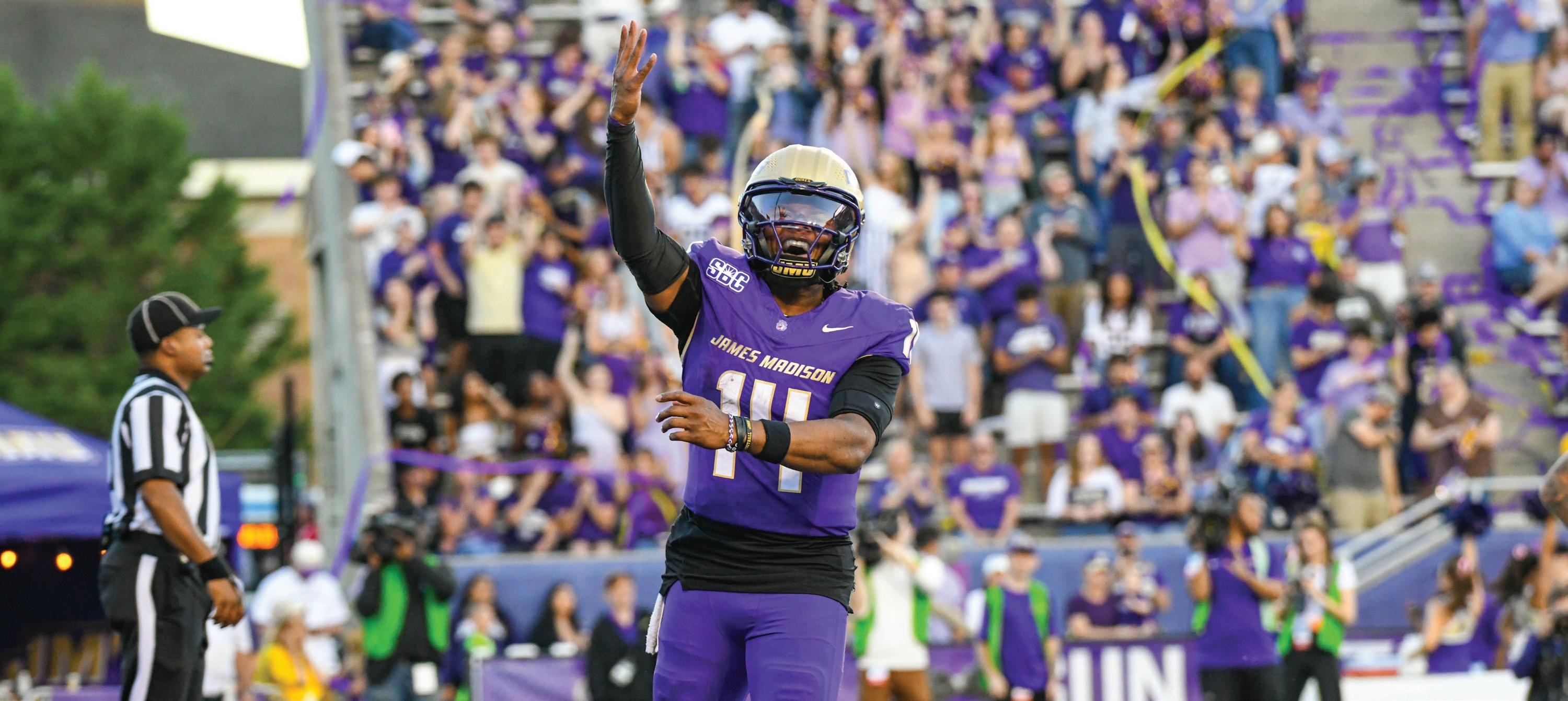
By PRESTON COMER
The Breeze
Even after JMU football (7-1, 5-0 Sun Belt) switched from a two-quarterback system to rolling with just redshirt junior Alonza Barnett III, its offense relied heavily on the run game.
The Dukes were able to get away with a ground-and-pound attack on offense, as they’ve averaged 244.1 rushing yards per game this season, and have scored 22 of their 37 offensive touchdowns on the ground.
JMU didn’t have much of a choice but to rely on its running backs early, as Barnett and the passing attack took time to find a rhythm.
On Oct. 4, the Dukes faced Georgia State in Atlanta. While they came away with a 14-7 victory, it wasn’t a pretty win. Barnett threw for just 74 yards, completing 11 of his 22 pass attempts.
JMU’s wide receivers caught 45 of those 74 yards, and junior receiver Landon Ellis took that number to heart. After the win over the Panthers, Ellis wrote “45 yards” on a whiteboard in his bedroom and circled it with a red marker.
“I really took that personally,” Ellis said. “Honestly, I hear the noise. I know what they’re saying about us passing the ball, and I know what we’re capable of. I really want to go out there and show the world what we’re capable of.”
Showing the world what their passing game is capable of is exactly what the Dukes did. Barnett threw for 290 yards and three touchdowns in a 24-14 win over Louisiana, and followed that up with 295 yards and two touchdowns in a 63-27 blowout over Old Dominion.
“We have a long way to go, but I’m confident,” Barnett said after beating the Monarchs. “We can’t listen to the outside noise … because everybody’s going to give us their best shot. We control our destiny.”
Even if Barnett thinks the Dukes’ offense has more growth in store, there’s no hiding how far their passing game has come.
It all started after JMU’s win over Georgia State. Head coach Bob Chesney said the quarterbacks and receivers held multiple player-led meetings “to make sure everybody was on the same page.”
Ellis echoed Chesney and said the Dukes’ offense needed the meetings to get on the same page.
“As an offense for the entirety of the season, everybody’s done a good job at individual times, but we haven’t clicked at the exact same time,” Ellis said. “We’re definitely going to continue doing those [meetings] the rest of the year.”
Barnett has helped create explosive plays through the air by starting to use his legs more. Even though he’s still a threat to pick up some yards on the ground — rushing for 251 the last two weeks — that threat has allowed him to open up the passing game. Barnett said that goes back to offensive coordinator Dean Kennedy, who told him, “Scrambles equal explosives.”
“Even when I get out of the pocket, I’m not looking to run, I’m looking to throw, get my teammates involved,” Barnett said.
As far as receivers, JMU has had one surpass the 100-yard mark each of the last three weeks. Ellis tallied 120 yards and three touchdowns against Louisiana and came up just short of the mark with 97 yards against ODU.
Redshirt senior receiver Nick DeGennaro has back-to-back 100-yard games, with 106 yards against ODU and 101 against Texas State. He also scored two touchdowns in each game. DeGennaro has been a key piece of JMU’s offense explosion; he tallied just 97 yards through his first six games.
The Dukes’ passing game has continued to climb as they put up 52 points and 511 total yards of offense against Texas State on Tuesday night.
CONTACT Preston Comer at breezesports@gmail.com. For more football coverage, follow the sports desk on X and Instagram @TheBreezeSports.
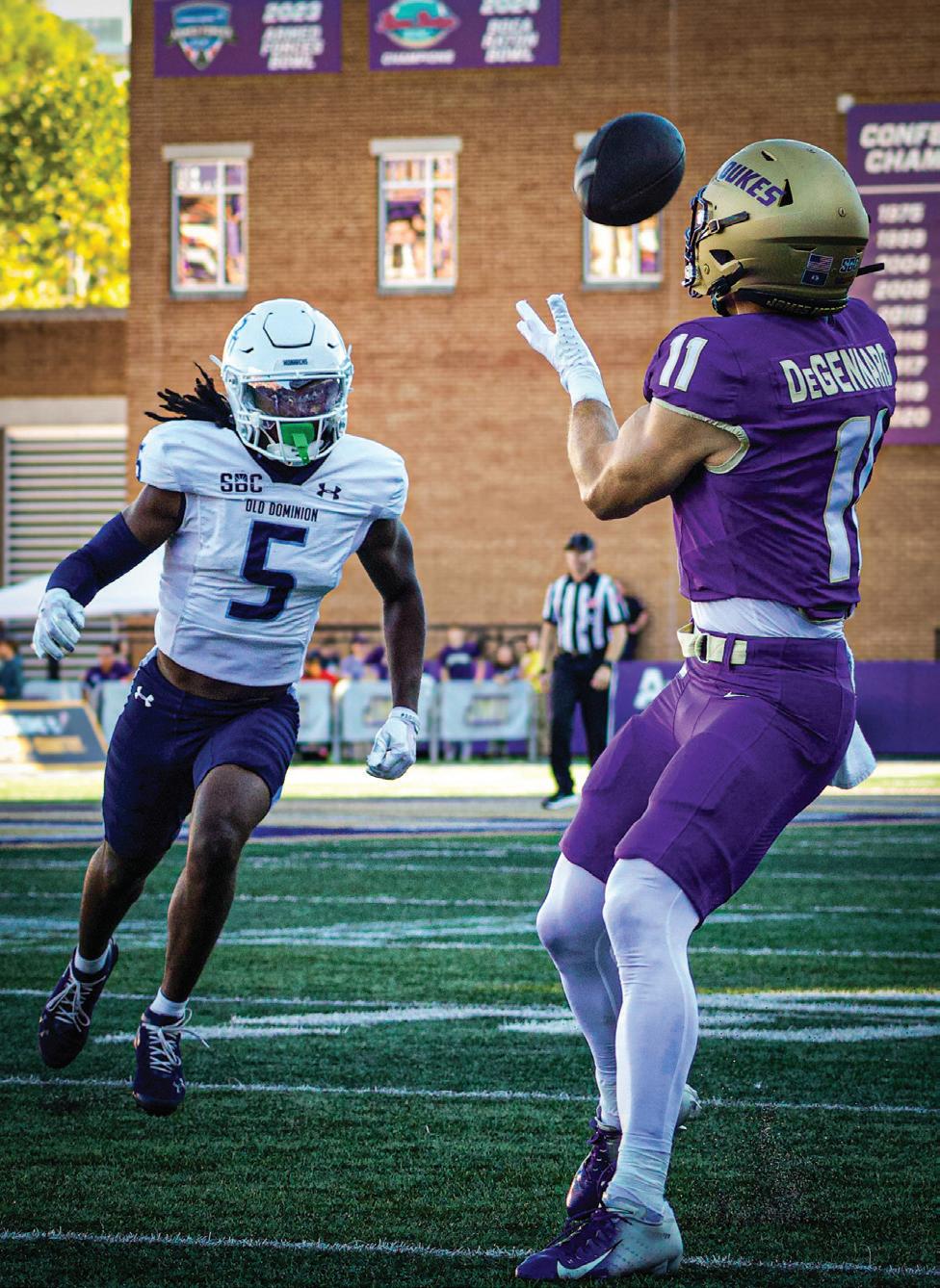
By PRESTON COMER The Breeze
JMU football (7-1, 5-0 Sun Belt) has allowed just one opponent to surpass 300 yards of total offense this season: Texas State. And it took eight games for one of JMU’s opponents to do so. The Dukes lost defensive coordinator Lyle Hemphill at the conclusion of last season, but they brought in Colin Hitschler. While Hemphill’s defense was arguably the best in the Sun Belt, Hitschler has somehow made the Dukes’ even better and possibly one of the top defenses in the entire FBS.
Most recently, JMU’s defense tallied three takeaways in a 52-20 win over Texas State. The Dukes also held the Bobcats scoreless during the second half, only allowing them to gain 74 total yards in the half.
Here’s a look at how JMU’s defense ranks across the FBS.
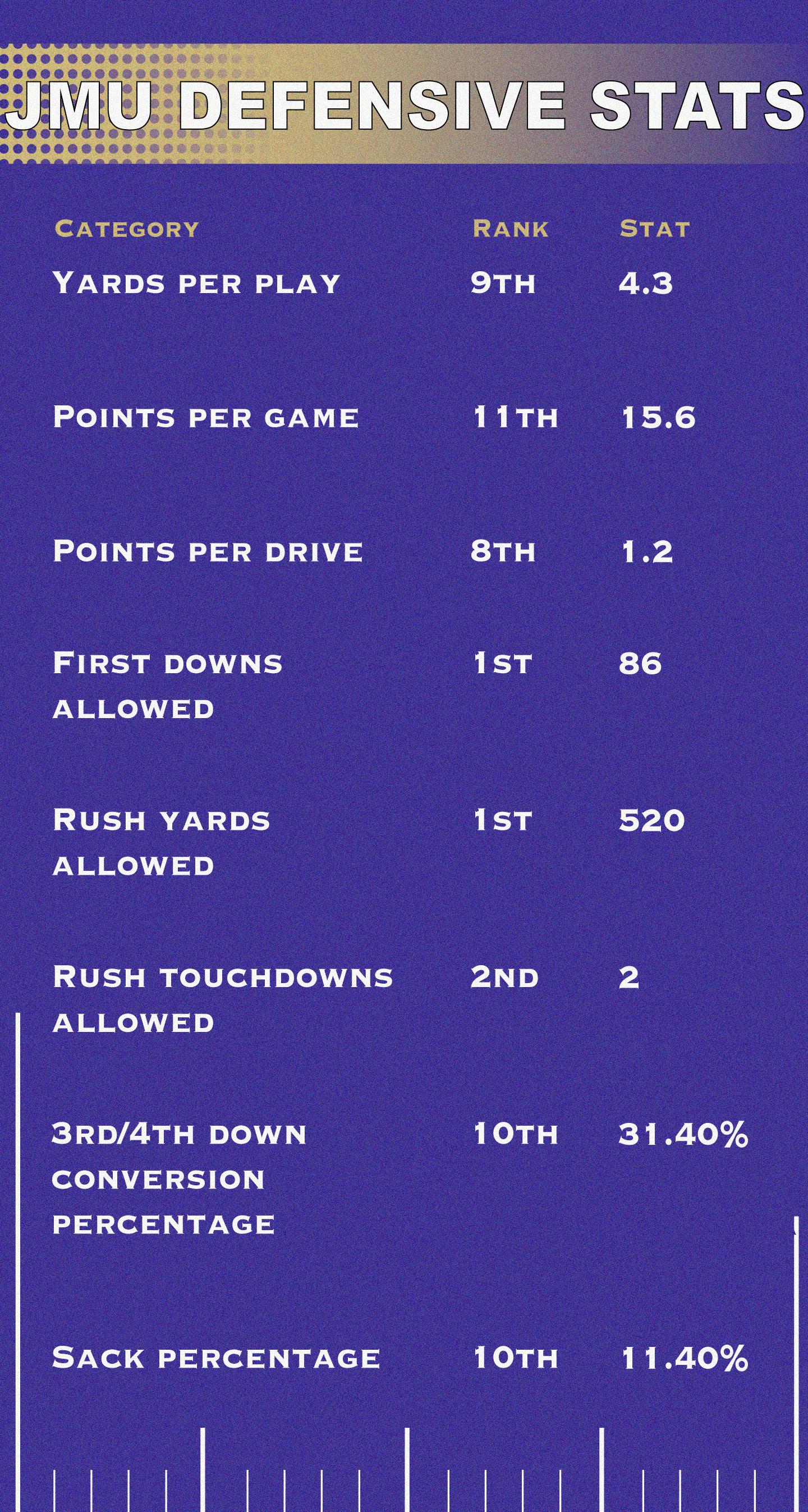
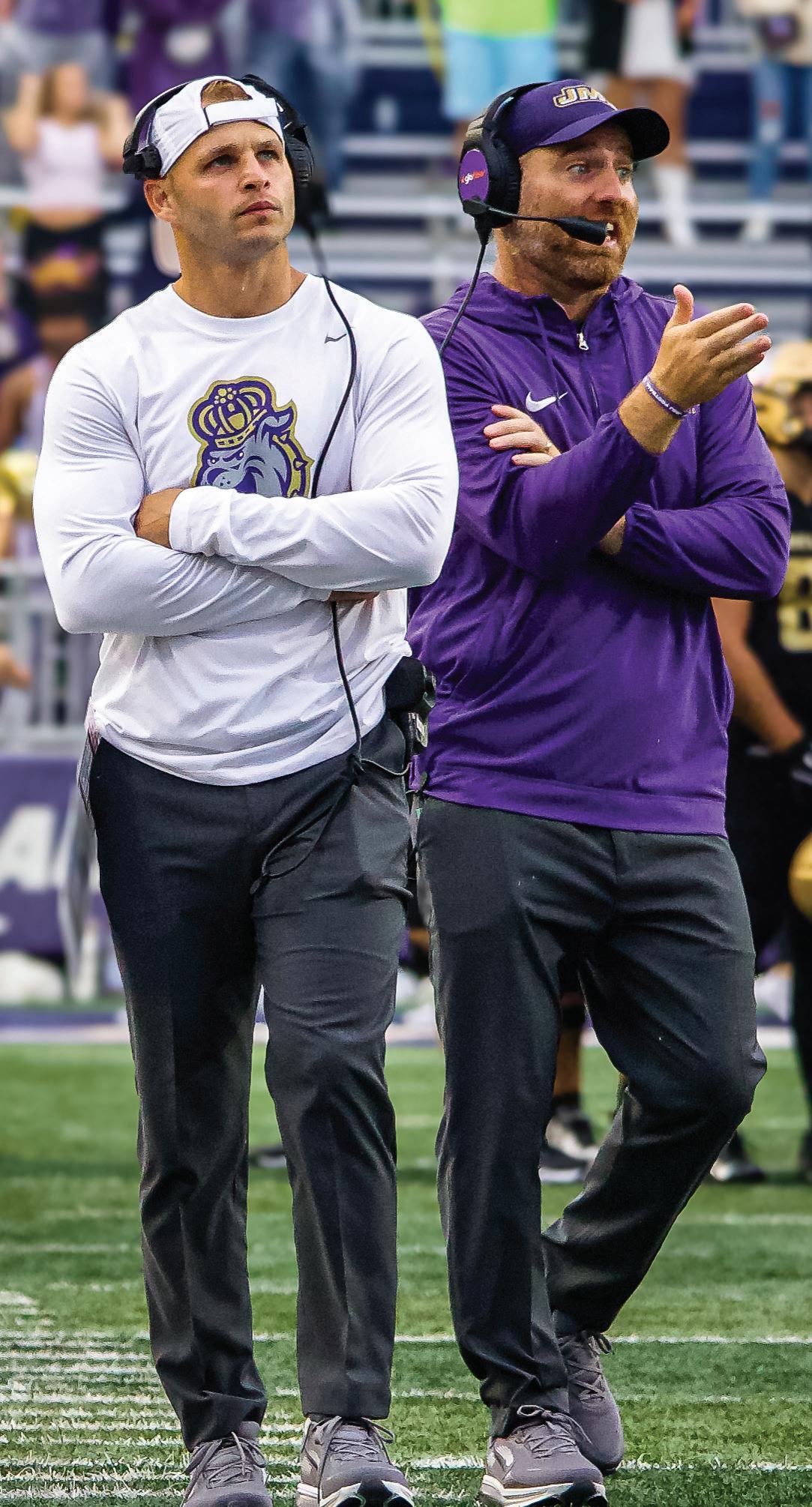








EDITOR EMAIL breezeopinion@gmail.com Caroline McKeown

Want to praise someone or get something off your chest? Darts & Pats is the place to do it. Submit your own at breezejmu.org.
A “mouth-harassing” pat to my cold foam lid.
From someone who spent $8 on a coffee and intended to get their money’s worth.

ASHTON COLLINS contributing columnist
For the last 10 years, every box office hit was either part of a franchise or a reboot/ remake of a beloved classic. Marketing a movie as part of a pre-existing saga could guarantee audiences run to theaters to catch the latest installment, thanks to familiarity with the franchise’s story and characters. Therefore making the movie a commercial success with the funds it accumulates from ticket sales. However, it seems this isn’t the case anymore. Audiences are becoming fatigued with the same unoriginal storylines and characters. People want something fresh, new and exciting to grace their eyes with. This can also partially be from the ever-shortening attention span of our current generation because of increased digital media use, constant information flow and task switching. So, movie studios need to meet these demands if they want their businesses to thrive.
These unnecessary franchise movies are usually given the term “cash-grab,” but you can’t exactly call them that anymore after witnessing the way they perform. Studios are recognizing this trend and are starting to use the new ideas pitched to them by screenplay writers. If studios still aren’t willing to embrace these proposals, writers are taking it into their own hands to get these thoughts to the big screen.
Take, for instance, writer and director Ryan Coogler’s latest release, “Sinners.”
opportunities for their ideas to be taken up by movie companies.
“Sinners” isn’t the only original movie making waves within Hollywood. “One Battle After Another,” directed by Paul Thomas Anderson, was highly reviewed by audiences and critics alike. It currently has a score of 4.4 out of five on Letterboxd with over 1.1 million reviews, which is exceptionally high considering how harsh people can be when logging movies on the app.
A “make-it-makesense” dart to all speed limit signs that are 12 mph.
From a driver who likes normal speed numbers.
A “Tuesday-night-lights” pat to JMU for winning the game on Tuesday.
From a student who didn’t watch it but really loves school spirit.
A “Wuthering-Heights” dart to this god awful weather.
From a student who actively has to fight to get out of bed.
The usual movies that have proved to be successes in the past (Marvel, Disney and Universal) have been bombing at the box office as of late, with only “29% of U.S consumers saying that they keep up with ‘most or all’ entries in a given franchise,” according to a July Señal News article. For example, Disney’s “Tron: Ares” domestically opened to $33.5 million and a 54% rating on Rotten Tomatoes, despite a production budget of $180 million and a star-studded cast.
The film came to be after Disney’s attempt at rebooting the “Blade” franchise was ultimately shelved after years of directorial disputes and writer strikes. The Blade movie was supposed to be set in the 1920s or ’30s. Blade’s costume designer, Ruth Carter, was still fully engrossed in the world of prohibition-age vampires after the cancellation. So, when Zinzi Coogler (Ryan Coogler’s wife) approached Carter and “called her to find out if she could work on “Sinners,” not only was she interested, she was prepared,” according to an April Cassius article.
“Sinners” opened to critical and commercial success, grossing over $122 million during its theatrical run. The film is regarded as one of the best of the year and isn’t connected to a franchise or a remake. This shows how audiences are gravitating towards new, original ideas, which is not only good for movie-goers; it’s good for screenplay writers too, as it gives them more hope and
Could this predict a trend in the entertainment industry? While cinemas will never be free from the franchises epidemic, it’s telling how audiences are shifting towards these independent movies. It shows how we as humans need these fresh and new movies to connect and spark inspiration to develop more ideas to continue the trend.
This way, movies shape our identities and culture, so why continue to make these lifeless sagas? If we want to make films that will resonate with audiences, we need to learn from these movies and study the films of the past to distinguish what makes them masterpieces. All so we can pass on these ideas and movies for future generations to watch, enjoy and learn from.
CONTACT Ashton Collins at colli4ax@ dukes.jmu.edu. For more editorials regarding the JMU and Harrisonburg communities, follow the opinion desk on X @TheBreezeJMU and on Instagram @BreezeJMU.

There’s no decision greater than what gas station you pledge your allegiance to. It can make or break any road trip, no matter the length. Even with the recent addition of Buc-ee’s to our lovely city, the debate still remains as strong as ever: Sheetz or Wawa? With the new Wawa having opened in Elkton, I knew I had to get to the bottom of this plaguing issue.
To help me break this down, I asked sophomore nursing major Tierney Ciaverelli, a girl from the North who found herself among the rest of us. Ciaverelli is New Yorkborn, but Richmond raised (mostly), and she attended Fairfield University in Connecticut before transferring here for her sophomore year. I feel like hometowns play a part in the gas station partiality, so when I met Ciaverelli, a unique case, I knew I was in for a treat — my very own unicorn, if you will.
When I asked her preference, it took not even a second for her to stare me in my eyes and spoke her truth: “Wawa.” It was like a declaration of utmost faith. The look in her eyes was that of a soldier ready to charge into war, or maybe a really protective lioness
or something. You get what I mean. A part of me was ready to surrender to her, but as the serious and intimidating writer I am, I stayed strong.
“Sheetz just simply does not exist where I’m from,” Ciaverelli said.
So it’s valid that she leans towards Wawa — it’s all she’s ever known! Her usual order is a turkey sub and a pretzel with a Diet Coke — so obviously, we’re dealing with a high-class woman. Hard to beat a nearly perfect order, but I think Sheetz has enough to combat it — have you even had the mac and cheese bites? The App Sampler?
In all honesty, my criteria for what makes a “good” or “better” gas station is one thing and one thing only: the Good Ice. If an establishment doesn’t offer the Good Ice, consider it over. A customer lost. A heart broken.
For those who are unfamiliar with the Good Ice (which hurts my soul a little bit but), it’s essentially little nuggets of ice rather than the cubes we are usually subject to. Think Chick-fil-A ice or sometimes, if you’re lucky, Starbucks refresher ice (I literally take all the fruit pieces out when I’m done and eat all the

ice. Is that concerning?). Luckily for me, both of these monument-adjacent places have the Good Ice, which makes my life both easier and harder. And yet, with both places having the Good Ice, personally, my heart beats for Sheetz. Sue me!
More events in my life can be marked by visits to Sheetz than anything else — this summer, right by my internship office in Richmond, there was a Sheetz. When I could feel that 1 to 3 p.m. slump lurching around the corner, I would treat myself to a Coke Zero. It was perfect. This year, my apartment is right by the Sheetz, and I have gotten more slushies than I deserve, probably, but that’s none of my business. It’s too easy!
A part of me does wonder how the new Wawa here in Rockingham County will change things. Will the line at Buc-ee’s suddenly become shorter? I can almost guarantee the answer is still no, but a girl can certainly dream. Why am I waiting 19,948,239,483 minutes for a brisket sandwich? Anyway. I digress. Will the first thought for a treat become Wawa and not my usual slushie and App Sampler at Sheetz?
As if I would betray my beloved, but maybe Ciaverelli is onto something.
“Even though I grew up with Wawa and not Sheetz, I just feel like the food is so much better at Wawa than Sheetz,” Ciaverelli said.
A part of me wonders: Has she ever even had Sheetz chicken nuggets? I understand Hoagiefest is supposed to be lit, but, like, Sheetz is a party every day?
This might just remain a question that goes unanswered. At the end of the day, as long as you have your place to get your late-night treat, that’s all that matters. Life is short! Get a slushie or a turkey sub or a mac-and-cheese bite, or maybe all of the above! I support you no matter what. You are loved in Sheetz or Wawa or Buc-ee’s or even 7-Eleven if you get down like that.
CONTACT Shishira Nakka at nakkasl@ dukes.jmu.edu. For more editorials regarding the JMU and Harrisonburg communities, follow the opinion desk on X @TheBreezeJMU and on Instagram @BreezeJMU.




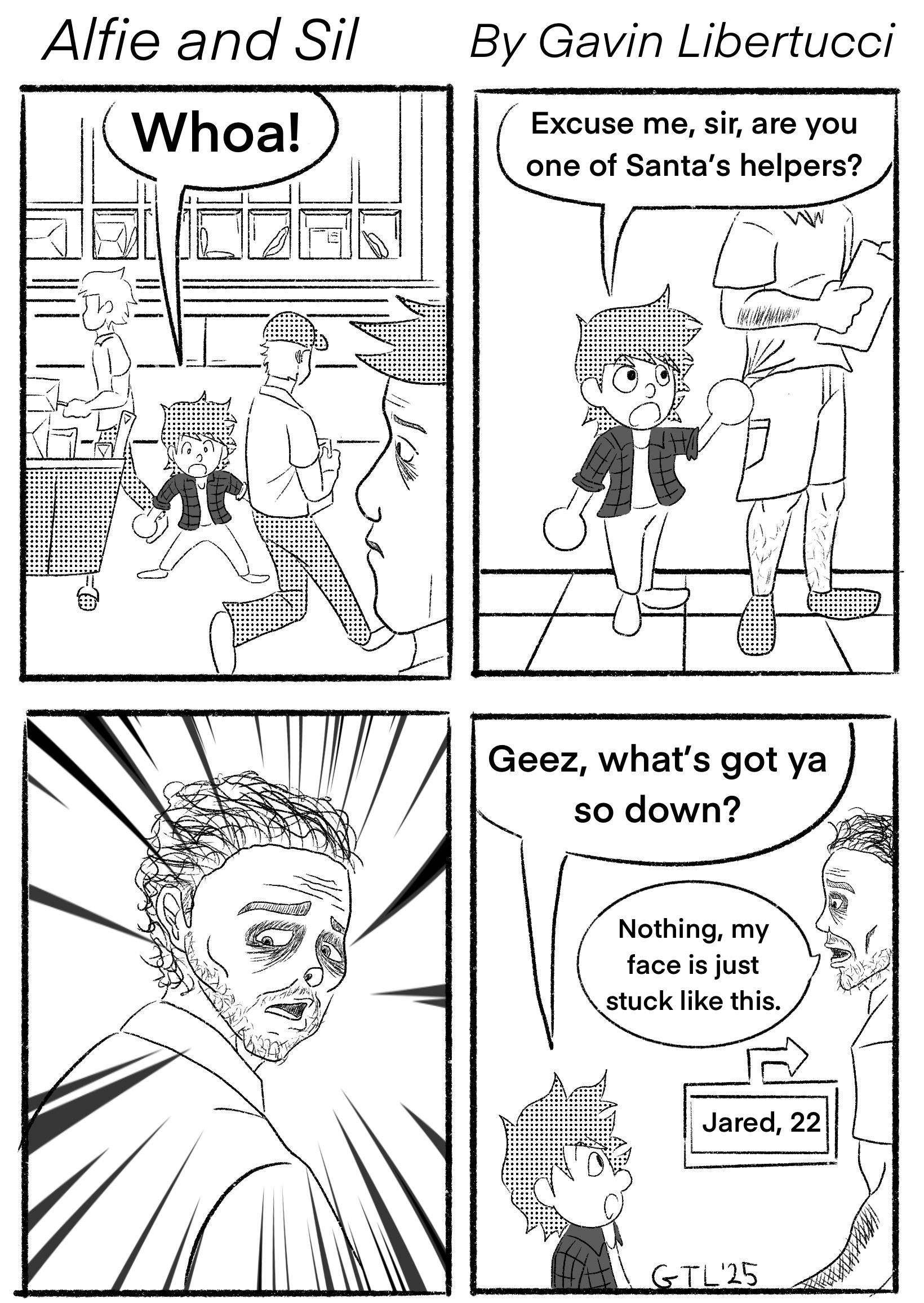
EDITOR-IN-CHIEF Eleanor Shaw breezeeditor@gmail.com
NEWS EDITORS Emma Notarnicola & Landon Shackelford breezenews@gmail.com
COPY EDITORS Kayla Katounas & Joelle McKenzie breezecopy@gmail.com
PRINT MANAGING EDITOR Hannah Kennedy breezepress@gmail.com
CULTURE EDITORS Isabel Lewis & Charlie Bodenstein thebreezeculture@gmail.com
PHOTO EDITORS Kailey Garner & Annabel Dewey breezephotography@gmail.com
ONLINE MANAGING EDITOR Sixuan Wu thebreezeweb@gmail.com
SPORTS EDITORS Preston Comer & Gavin Avella breezesports@gmail.com
AUDIENCE EDITORS Ella Warren & Madeline Buynak thebreezesocials@gmail.com

“Writing’s On The Wall” by Role Model
“Life Changes” by Thomas Rhett

“Santa Monica” by Everclear
“Dracula” by Tame Impala

“Goofy Goober Rock” by Tom Rothrock
“Baby Steps” by Olivia Dean

“Season of the Witch” by Lana Del Rey
your answers on our weekly Instagram poll @BreezeJMU!
S. Main St. Harrisonburg, VA 22801 PHONE: (540) 568-6127 FAX: (540) 568-7889
OPINION EDITOR Caroline McKeown breezeopinion@gmail.com
ART DIRECTOR Julia Tanner thebreezeartdirector@gmail.com
TV NEWS DIRECTOR Alexa Bonilla jmubreezetv@gmail.com

If you have any corrections, please contact the section editors via their designated email or the editor-in-chief at breezeeditor@gmail.com.

Los Angeles Times Daily Crossword Puzzle
Edited by Patti Varol
ACROSS
“Later, gang!”
Winter ailment
Chats online, briefly
At a distance
Pull a pre-final allnighter
Cabbage-based side 15 Spendy flying option
__ to self
Ga. airport code
Arts and crafts, to a grammarian
“Oppenheimer” or “Anora” 21 Corner chess piece 23 Dating option not recommended by Madonna in “Express Yourself”
“Sheesh, what a day!” 27 St. Francis of __
Drips through slowly 29 Picked up the tab
Concert souvenir that may list tour stops
Topic to avoid, metaphorically
LLC alternative
Scrap
Peony part
Danish or Swedish
Vietnamese sandwich
Imaginary barrier that might be broken by a stage actor 53 The “D” of NYPD, for short
Start
Celebrity’s hotel check-in name, perhaps
Sandwich with three key components
Moreno with an EGOT
Double date tagalong
Like many dorms
Raison d’__
Disparage
Finish
Lingo suffix
Some dessert wines
By Samuel A. Donaldson




Madison Marketplace is open for business, and all text-only listings are FREE ! Post job listings, announcements, rentals and more using our online placement tool. Ads run two weeks online and in two print editions.
1 bedroom 1 bath Apartment located at Sherwood Apartments on Robbin Hood Ct in Harrisonburg. Rent $950, W/S/T included. Washer and Dryer in the unit along with a full kitchen and all appliances. Available December 2025. Inquiries please email klinemaint@comcast. net or by phone 540-833-6104

Are you ready to be the driving force behind cutting-edge public safety technology? Join the Harrisonburg-Rockingham Emergency Communications Center’s team as a Software Portfolio Specialist and help shape the future of emergency communications in a high-impact, mission-driven environment. Find out more/apply online: https://www.harrisonburgva. gov/employment.EOE.
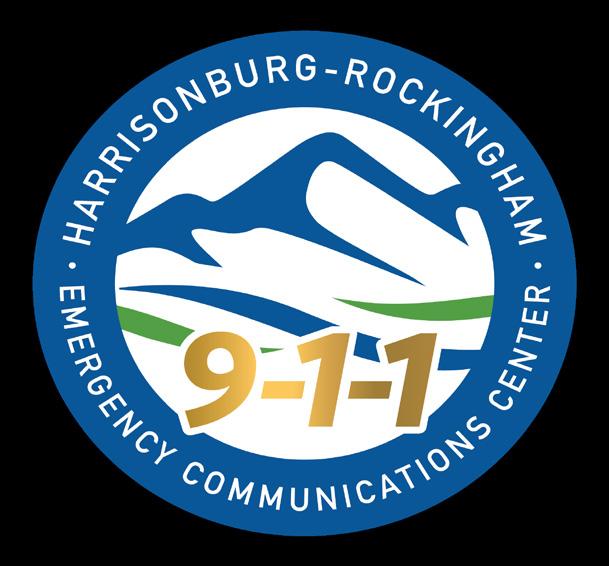
1 Bedroom 1 bath Apartment down town Harrisonburg available January 2026. All utilities included . $1050 a month. email for information klinemaint@comcast.net or 540833-6104

Transportation Services Airport transfers, wine tours, special events Motorcoach trip to Liberty football game Sept 20 Contact Adventures-N-Travel.com Call or text 540-810-1196 mikepackett@aol.com

Career Opportunity - Police Recruit
The City of Harrisonburg is currently accepting applications for noncertified individuals interested in joining the Harrisonburg Police Department, which offers a rewarding career plus an excellent benefits package, including enhanced hazardous duty through the Virginia Retirement System (VRS). Find out more/apply online: https://www.harrisonburgva.gov/ employment. EOE.

Part-time bartender no experience necessary will train must be 21. Apply in person at VFW 450 Waterman Dr Harrisonburg Va 22802 .
Internship Opportunity - City Manager’s Office (Harrisonburg, VA)
Are you a student seeking real-world experience in public administration with a locality recognized both regionally and nationally for a variety of achievements? If so, apply to the City of Harrisonburg’s City Manager’s Office Internship Opportunity! Find out more/apply online: https://www. harrisonburgva.gov/employment. EOE.
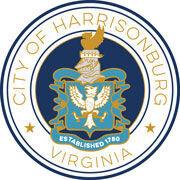
Missing Giraffe! Please Help!
This large concrete giraffe yard ornament was stolen from an elderly resident Aug. 22 on Port Hills Drive. It is a very sentimental gift and is 40 inches high. Please return to 1588 Port Hills Drive No questions asked. If you have seen it please call Andy at 757-592-2888

Game room
Large folding ping pong table with accessories. Foosball table with extras. Both in good condition. Must pick up, cash only $75 each. 540-578-2362
REAL ESTATE
Property for Sale in Staunton Building for Sale. Three store fronts. Two Apartments. Needs Total Renovation. 300 Central Ave., Staunton, VA 24401 $310,000 or best offer. Call 540-290-0375

O rd e r t o d a y a n d e n j o y !



